Not him again!

Sebastien Loeb at the 2009 Australian Rally (Wiki-commons: courtesy of Craig Coomans)
Domination – whether it’s Lance, Roger or Tiger – in sport, it’s a problem. The average fan detests seeing the same winner wheeled out for champagne, kisses and a big novelty cheque time and time again. It makes people switch off, or worse, switch over to a new sport.
So what can be done when someone is so good that they threaten to destroy the very sport they represent?
You could accuse them of cheating – just ask Lance. You can wait until they get just old enough to level the playing field – see Roger about that one. Or, you could wait for them to, well… whilst not being entirely sure what Tiger was up to, you can bet your bottom dollar that the powers that be in the golf world shed few tears at his self destruction.
In motorsport, the happiest day in the life of most Formula 1 fans was quite probably the day that Michael Schumacher retired. After winning five back-to-back championships in the early noughties and seven overall, the F1 scene was rapidly becoming a Schumacher parade. The chisel-chinned German took the chequred flag with such tedious regularity that even the hardiest of fans were starting to appreciate the joys of badminton or curling in a whole new light. Schumacher, despite all his brilliance, was and still is hated.
Sport is funny in this respect. Everyone loves talent but nobody likes too much of it. Rivalries, on the other hand, are great. Witness the way that Bjorn Bjorg is still remembered so fondly today, despite the fact that during the mid to late seventies, he was Roger Federer and Rafael Nadal rolled into one, winning five straight at Wimbledon and four straight in Paris. The reason for this is that he didn’t have everything his own way, and in Jimmy Connors and John McEnroe he had two rivals to help carry the prizes. Between 1977 and 1984, only two other men outside of the fearsome trio made an appearance in the Wimbledon final. To put it bluntly, sports fans tend to like the guy that wins now and again, but more importantly loses now and again. Spare a thought, then, for Sebastien Loeb.
Not feeling the Loeb
The World Rally Championship (WRC) may not be the biggest sporting organization out there, but it has a global appeal and a fiercely loyal fan base. Rallying generally involves racing against other drivers on the clock, rather than on the same track like racing cars. Rallies, which are held on a variety of surfaces including gravel, tarmac and ice, are divided into stages and the winner is the man with the fastest overall time. It isn’t a sport for the faint hearted; a quick glance at some of the unbelievable on-board camera footage available on the internet is enough to put most normal people off driving for life. Yet for a while in the late nineties and early noughties, the WRC was vying with Formula 1 for the title of world’s premier motorsport. Rally fans rubbed their hands in glee as Michael Schumacher won season after depressing season in F1, causing fans to leave in their droves.
Little did they know that waiting in the wings was a softly spoken Frenchman who would go on to control their sport in an even more dominating fashion than the Regenmeister himself.
Sebastien Loeb rather surprisingly started out in sport as a gymnast, but after switching to rally driving in 1995, he went on to join the WRC in 2002. In 2003 he finished second in only his second season in the championship. There was no stopping after that, and as of June 2010 he was very much on course for a seventh straight title. Rallies tend to be won by the person who makes the fewest mistakes, and that is where Loeb is strongest. He is able to keep an extremely high level of concentration for much longer than his rivals, even when under intense pressure.
The problems, though, are the same as ever. Loeb’s dominance, along with several rule changes being forced through by the top manufacturers, has seen the sport dip hugely in popularity. It has become, to some extent, an F1-esque media circus. Loeb, unlike Bjorn Bjorg, doesn’t have any real rivals. Mikko Hirvonen came within a point of upsetting the Frenchman last year, but Seb really needs to be beaten to get the ball rolling. The emergence of ‘Little Seb’, compatriot Sebastien Ogier, over the last two years has seen some people talking about him as Loeb’s successor, but the use of the word ‘successor’ rather than challenger is indicative of attitudes to Loeb within the sport. There really just seems to be a dearth of fresh talent coming through to challenge Loeb, denying him the chance of a rivalry and perhaps a little more respect.
Loeb, despite all his talent and seeming to be a thoroughly nice guy, is in a way, killing the sport. In interviews he is always asked how much longer he plans to race for, but it always comes across as: “When are you going to let someone else have a go?” The answer from the man himself isn’t very promising for his rivals. After winning his sixth world championship last year, he had this to say about how much more pain he would inflict on them:
“I don’t know. As long as I can, for sure. I drive because I like to, so I’ll carry on as long as I feel that way. When I feel that I’m not motivated enough, maybe then I’ll stop.”
For the chasing pack, the only question is how much longer will his motivation last?
Story by Roddy Charles
From J SELECT Magazine, September 2010

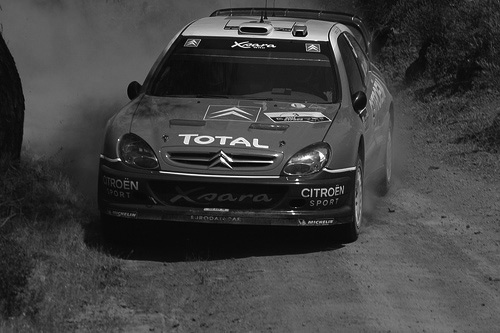






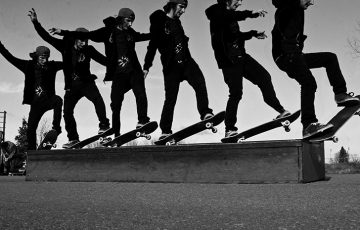
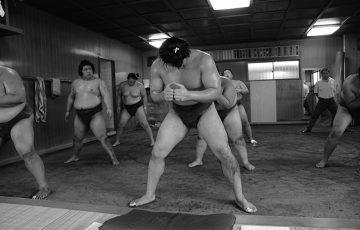
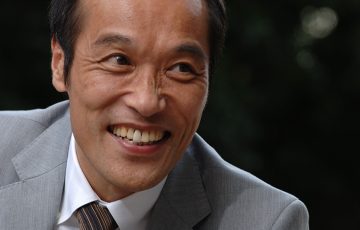

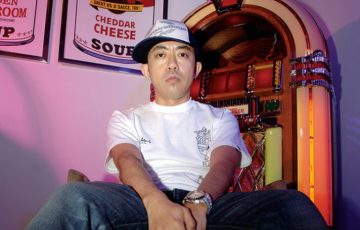


Recent Comments